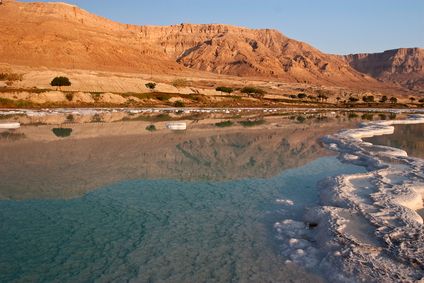Developing a Northern Biotechnologies Cluster in Israel – BioNorth

The S. Neaman Institute is leading an initiative to establish a ‘Northern Biotechnologies Cluster in Israel’ incorporating all companies, incubators, start-ups and academy researchers in the north of Israel. The rationale for this initiative is that biotechnology has become the fastest growing industrial sector in Israel and worldwide, and is reshaping science, especially life science, medicine, food and agriculture.
National Energy Technologies Research and Development Survey

This survey has been recently completed by the energy and environment team at the Samuel Neaman Institute, for the National Council for Research and Development (NCRD).
National Policy for Packaging Waste Management

The aim of this research was to examine policy alternatives for sustainable management of packaging waste in Israel. The work includes the definition of packaging types, weight estimation of packaging waste produced in Israel, a survey of packaging waste treatment methods in Europe and around the world
Innovation in Israel 2010 – Implementation of “Israel 2028” program

continuation of ISRAEL 2028 – Vision and Strategy, we are running an implementation project. This project is aimed to leverage the science and technology with the innovation culture into a national policy of enhancement a global competitive and sustainable industry.
Israel 2028: Vision and Strategy for Israel

Continuing the efforts to actually implement the program “Israel 2028 – Socio Economic Vision and Strategy in Global World”, the Samuel Neaman Institute initiated several projects designated to prepare a multi-annual implementation programs, in collaboration with government agencies.
Facilitating Collaboration in Stem Cell Research through Intellectual Property

The goal of the research is to create an infrastructure for designing a policy concerning research, development, and knowledge transfer in the field of stem cells. This policy was intended to encourage scientific innovativeness as well as help lever Israel’s position as a leader in this field in the global arena.
Energy Efficiency in the Milking Center of Ein Harod Ihud

The goal of this project was to examine means for the reduction of energy use or lowering energy costs in milking centers, and to propose measures that will include energy savings based on electricity and fuel consumption with a possible addition of solar energy, while meeting economical benefit criteria.
Affordable Housing: Developing Policy, Awareness and Pilot Projects

Housing affordability, or the lack of it, was the issue that sparked the mass social protests of Summer 2011, with tent camps in tens of cities and hundreds of thousands of demonstrators. This project works to develop new policies to promote affordable housing and social mixed neighborhoods in Israel. We draw on the experiences of other developed countries in creating new tools of regulatory planning and financial innovations.
Enlarging Water Supply in Israel Through Non Revenue Water (NRW) Reduction and Prevention of Sewage Leakage

The report requested by the National Inquiry Committee, aiming to investigate the water crisis in Israel. The report indicates the loss of fresh water from water distribution and leakage in the order of 64 million cubic meters per year, and leakage of sewage water of estimated 100 million cubic meters per year. The study did not include water losses by the rural sector.
Reclaiming the Dead Sea: Alternatives for Action

The aim of this project was to evaluate and present different alternatives for rehabilitating the Dead Sea and the Jordan River. In the process, three main alternatives were examined: “business as usual”, introducing sea water into the Dead Sea (from the Mediterranean or from the Red Sea), and water supply from the Jordan River.
